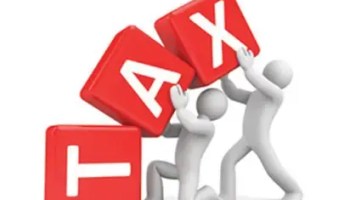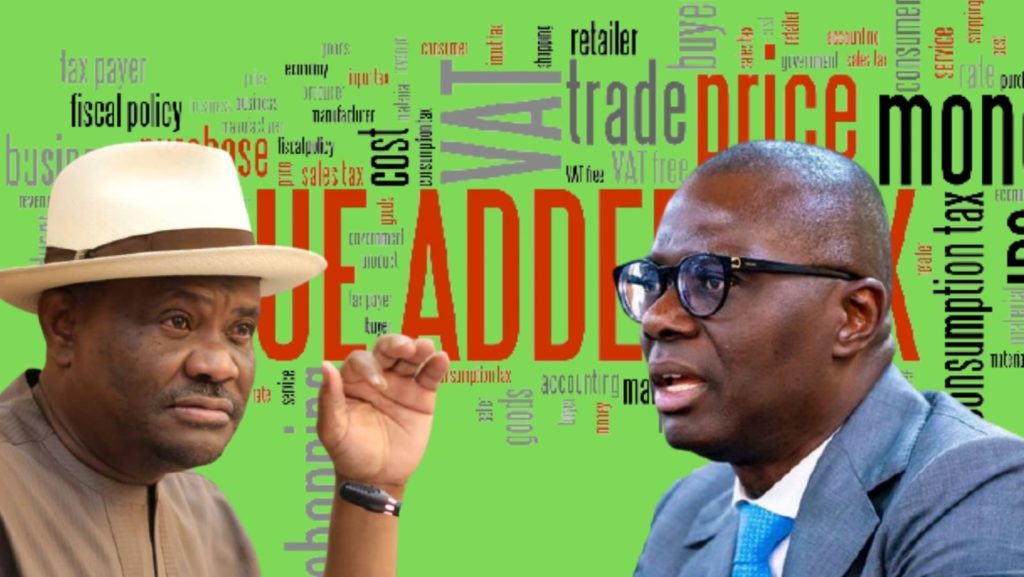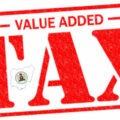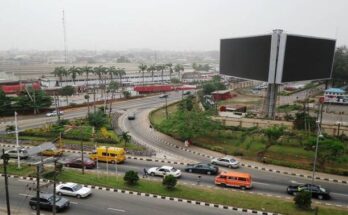By Otomewo Oritsejolomi Joshua
Value Added Tax (VAT), is a consumption tax paid by companies to the government when goods are purchased and services rendered in different parts of the country. It is expected to be a ‘national asset’ as some states in the country rely on it solely for economic growth. It was established by Decree No 102. of 1993.
The Value Added Tax is collected by the Federal Inland Revenue Service (FIRS) and then shared 15% to the Federal Government, 50% to all the 36 state governments and 35% to the local government. VAT is charged at a rate of 7.5% and all goods and services produced within a country are taxable except those specifically exempted like sanitary pads, educational materials, raw materials for export and services like health care and public transport.
Within the last ten years, reports reveal that Lagos and Rivers State governments have been agitating to control VAT and resources within their States. It stems from a dissatisfaction with the low revenue allocation to these states by the Federal government from VAT generated in the states.

According to the National Bureau of Statistics (NBS) in 2020, 418 billion naira was collected as taxes from Lagos state by the Federal Inland Revenue Service (FIRS) on behalf of the Federal government. Only 115 billion naira got back to Lagos state as federal revenue allocation. The remainder had been used to assist states who did not generate enough taxes. Value Added Tax (VAT) collected from Lagos state had contributed a significant portion to the total revenue shared to all the states.
Lagos and Rivers states are the highest VAT generating states in the country accounting for 70% of the income generated by the Federal Government (NBS). The revenue sharing formula is seemingly unfavourable as income generated in Lagos is taken from the state and used to support less productive states. The National Bureau of Statistics reports that Taraba generated only 8 billion naira throughout 2020 but received a total revenue allocation of 43 billion naira. The Rivers State assembly, dissatisfied with this state of affairs passed a bill that allowed it to collect VAT from companies. Lagos state followed suit with its tax bill which authorized the state to collect its VAT. It was signed into law by Governor Babajide Sanwoolu on the 10th of September, 2021.

The Federal Inland Revenue Service (FIRS), desperate to maintain the status quo, obtained a judgment from the Appeal court which ordered the Rivers and Lagos state governments to desist from collecting any VAT. However, Rivers state has appealed and the Supreme Court is expected to make a final judgment on the case.
Southern states will benefit more if FIRS no longer collects VAT. There is a heavier concentration of companies and industrial activity in the south and this means that they generate more taxes than the northern states. Several southern states like Ogun are already in various stages of enacting their own VAT bills. Recently, The Southern Governor’s Forum reiterated its support for VAT collection by the states. Meanwhile, some northern states are already making moves to secure gold sites and oil wells in Zamfara and Upper Benue.
With the tax tussle raging between the federal and state, companies are unsure where to pay their taxes this September 2021. According to the Federal High Court in Rivers state the tax should be paid to the state government, and Governor Wike has vowed to enforce that ruling, promising to seal companies that refuse to pay tax to Rivers. But the FIRS insists that it is still the legitimate agency to collect VAT in the state and failure to do so will amount to a breach of the Appeal Court order.
This will be a landmark case in the history of Nigeria to determine which level of government receives VAT remittances. Many have urged that states be their ‘brother’s keeper’ saying that a decision by the Supreme Court in favour of the states would only benefit high income generating states like Lagos to the detriment of less productive states. Others argue that the income generated in a state should be spent in that state, by its people, and less productive states should increase their income generation.








